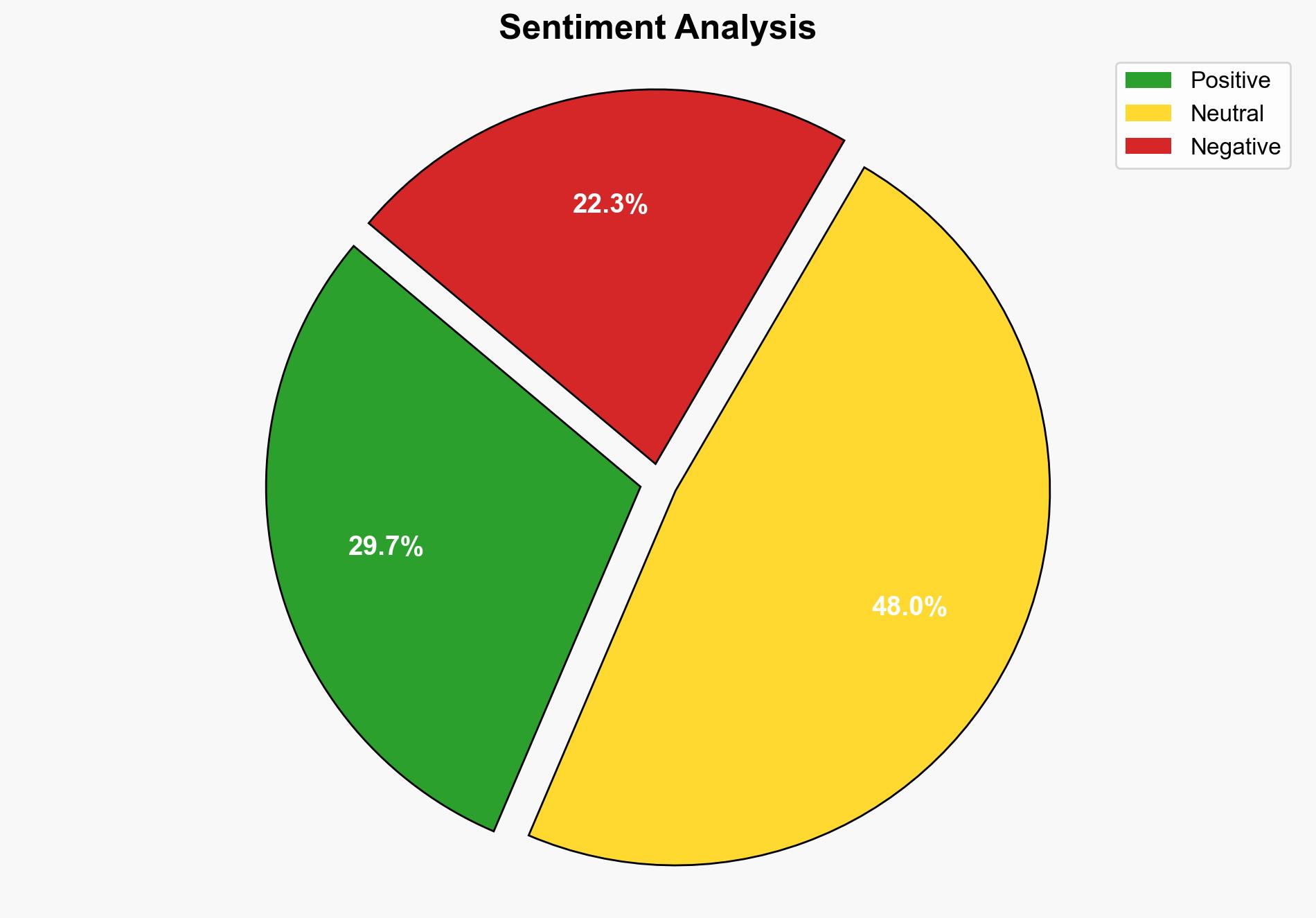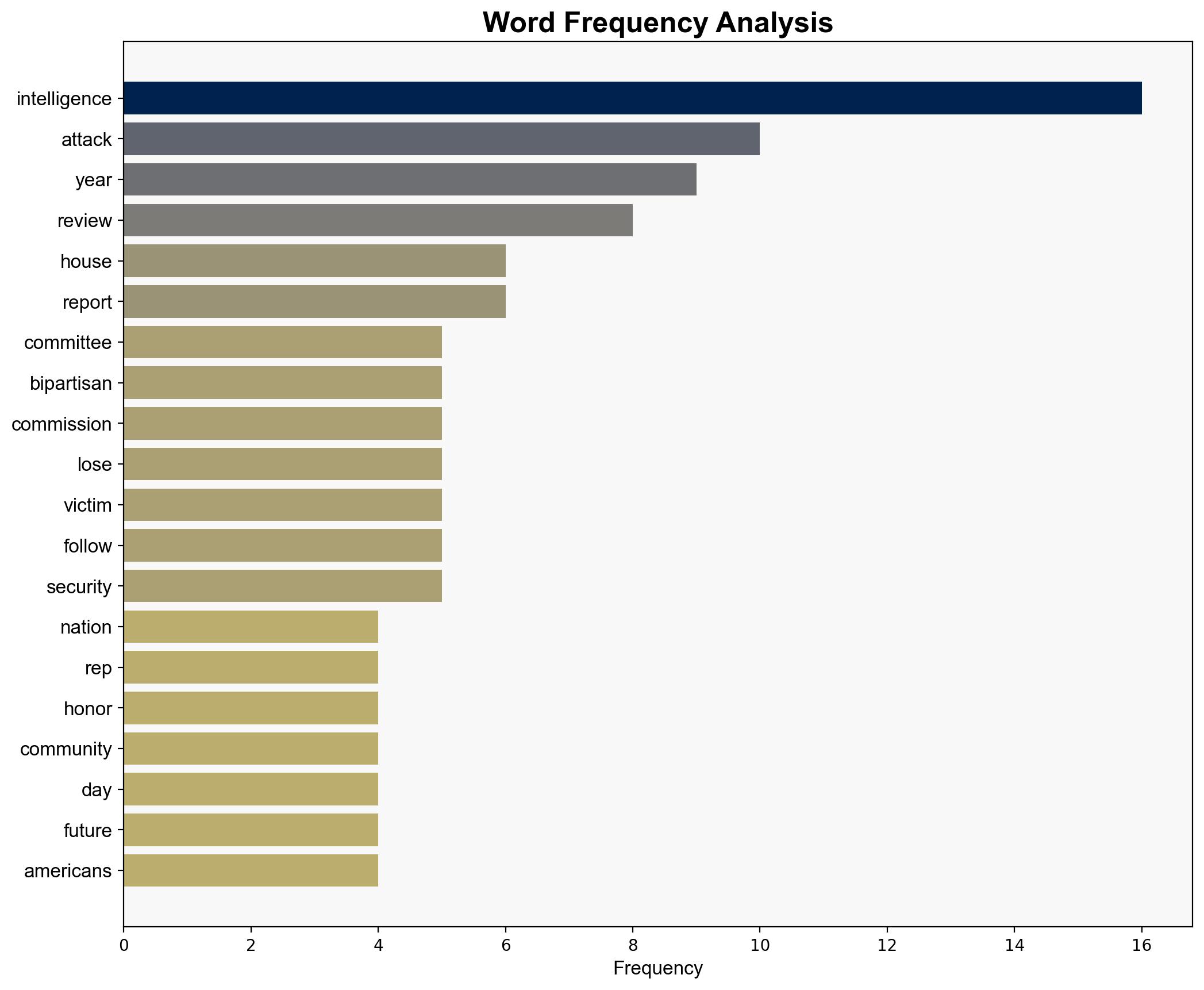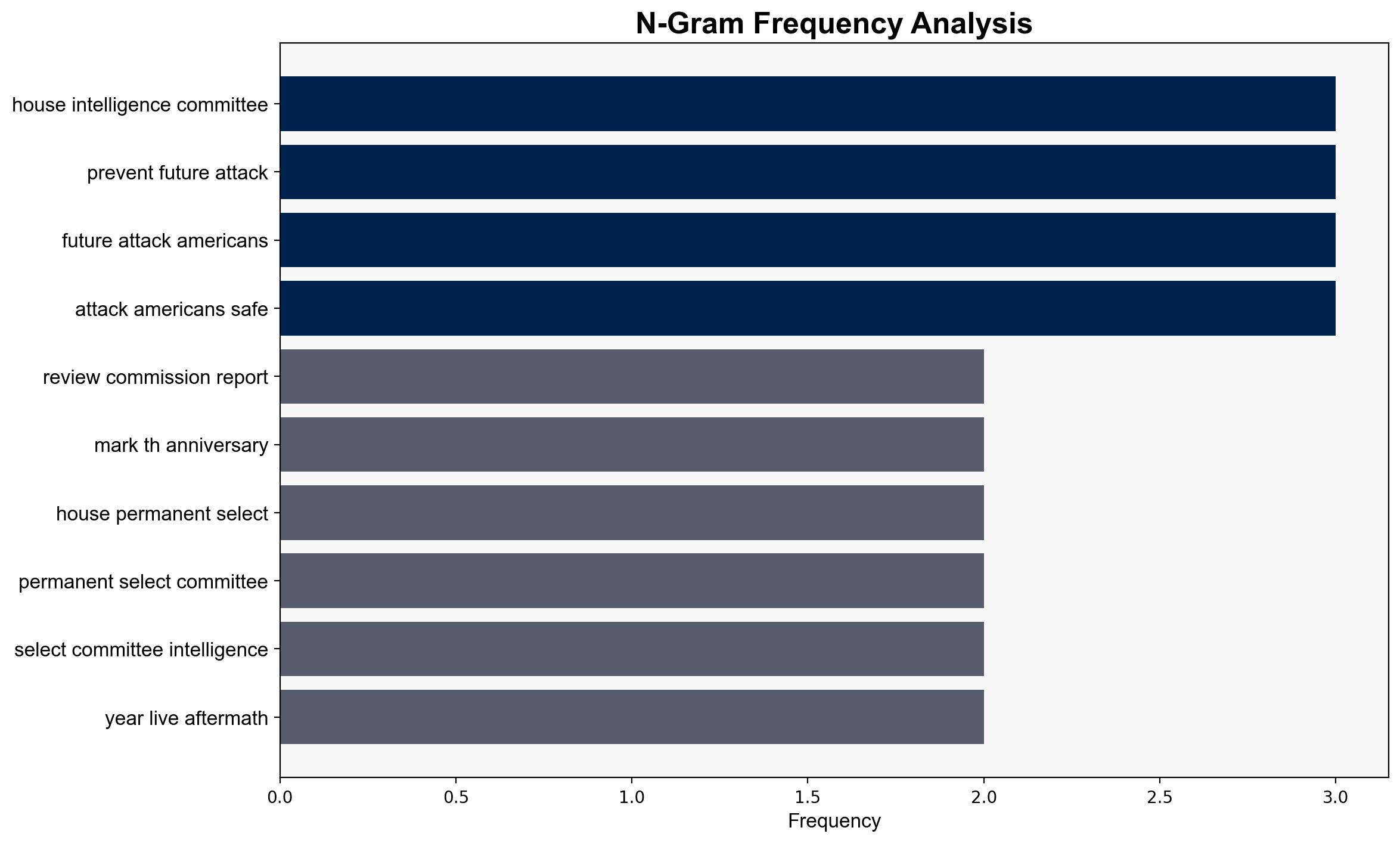House Intelligence Committee announce bipartisan review of 911 Commission report – New York Post
Published on: 2025-09-11
Intelligence Report: House Intelligence Committee announce bipartisan review of 911 Commission report – New York Post
1. BLUF (Bottom Line Up Front)
The House Intelligence Committee’s decision to conduct a bipartisan review of the 9/11 Commission report is likely driven by a combination of genuine security concerns and political motivations. The hypothesis that this review aims to address evolving terrorism threats is better supported than the hypothesis suggesting it is primarily a political maneuver. Confidence level: Moderate. Recommended action: Support the review process while ensuring transparency and accountability to prevent political exploitation.
2. Competing Hypotheses
1. **Security-Driven Review Hypothesis**: The review is primarily motivated by the need to reassess and enhance the intelligence community’s capabilities in light of evolving terrorism threats, ensuring the U.S. remains prepared against future attacks.
2. **Politically Motivated Review Hypothesis**: The review is primarily a political maneuver aimed at demonstrating bipartisan cooperation and addressing public concerns without substantial changes to current intelligence practices.
3. Key Assumptions and Red Flags
– **Assumptions**: The security-driven hypothesis assumes that the intelligence community has identified significant gaps in current counter-terrorism strategies. The political hypothesis assumes that public perception and political gain are primary drivers.
– **Red Flags**: Lack of specific details on what new threats have emerged or how past recommendations have been insufficient. Potential bias in interpreting the motivations behind the review.
4. Implications and Strategic Risks
– **Security Implications**: A genuine focus on security could lead to improved counter-terrorism measures and better-prepared intelligence agencies. However, failure to address real threats could result in vulnerabilities.
– **Political Risks**: If perceived as a political stunt, the review could undermine public trust in intelligence reforms and reduce bipartisan cooperation.
– **Geopolitical Risks**: Missteps in intelligence reforms could affect international partnerships and the U.S.’s global counter-terrorism stance.
5. Recommendations and Outlook
- Ensure the review process is transparent and includes input from a wide range of stakeholders, including independent experts.
- Scenario Projections:
- Best Case: The review leads to actionable intelligence reforms, enhancing national security and public confidence.
- Worst Case: The review is seen as ineffective, leading to political fallout and weakened intelligence capabilities.
- Most Likely: Incremental improvements in intelligence practices with mixed public and political reception.
6. Key Individuals and Entities
– Elise Stefanik
– Josh Gottheimer
– Rick Crawford
– Jim Himes
7. Thematic Tags
national security threats, cybersecurity, counter-terrorism, regional focus





